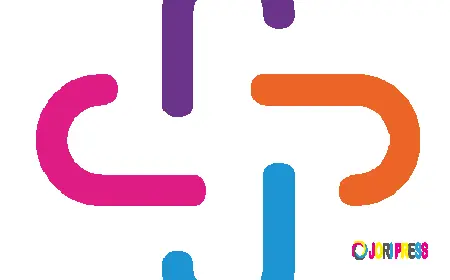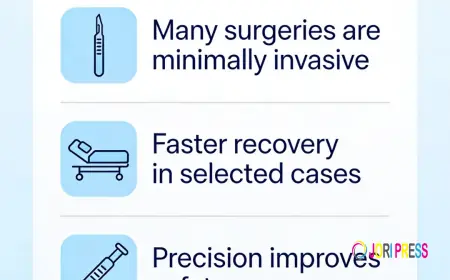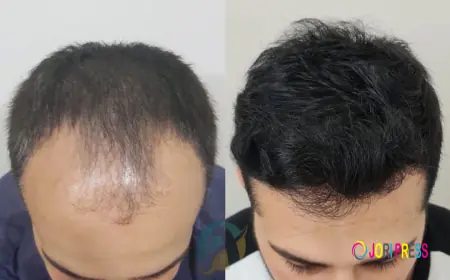A Complete Guide to Choosing the Right Intensive Outpatient Program Maryland
Whether you’re seeking help for yourself or a loved one, understanding what these programs offer and how to choose the right one is key to successful recovery.

Finding the right mental health or addiction treatment can be life-changing. An intensive outpatient program Maryland offers a balanced approach, providing structured therapy and support while allowing individuals to continue with their daily responsibilities.
Understanding Intensive Outpatient Programs
An intensive outpatient program Maryland is a treatment option that allows individuals to receive comprehensive care without the need for full-time hospitalization. These programs are ideal for those who need structured support but also want to maintain work, school, or family commitments.
Key Features of an IOP
-
Several hours of therapy per week
-
A combination of group and individual sessions
-
Flexible schedules, including evening or weekend options
-
Focus on mental health, substance abuse, or dual diagnosis treatment
-
Ongoing evaluation and progress tracking
Who Can Benefit from an Intensive Outpatient Program
Not every treatment setting is right for everyone. An intensive outpatient program Maryland can be the perfect fit for individuals who:
-
Have completed inpatient rehab and need step-down care
-
Need more support than traditional outpatient therapy provides
-
Are motivated to actively participate in recovery
-
Have a stable home environment
Types of Services Offered in IOPs
Different programs cater to different needs, but many share common treatment elements.
Individual Therapy
One-on-one sessions with a therapist allow you to explore personal challenges, develop coping skills, and address underlying mental health or addiction issues.
Group Therapy
Group sessions create a supportive environment where participants share experiences, offer encouragement, and learn from each other.
Family Therapy
An intensive outpatient program Maryland often includes family involvement, helping loved ones understand the recovery process and strengthen relationships.
Psychoeducation
Educational sessions help participants understand the science of addiction, mental health disorders, relapse prevention, and healthy coping mechanisms.
Holistic Therapies
Some programs incorporate mindfulness, yoga, art therapy, or nutrition counseling to support overall wellness.
Mental Health-Focused Intensive Outpatient Programs
While some IOPs focus primarily on addiction recovery, others are designed for mental health conditions such as depression, anxiety, PTSD, or bipolar disorder. These programs use evidence-based therapies like Cognitive Behavioral Therapy (CBT), Dialectical Behavior Therapy (DBT), and trauma-informed care to promote healing.
Substance Abuse-Focused Intensive Outpatient Programs
A substance abuse intensive outpatient program Maryland provides structured treatment for individuals recovering from alcohol or drug addiction. Programs often include relapse prevention strategies, coping skill development, and aftercare planning.
Dual Diagnosis Treatment
Many individuals struggle with both substance abuse and mental health disorders. Dual diagnosis IOPs address both conditions simultaneously, offering a more effective and integrated approach to recovery.
Advantages of an Intensive Outpatient Program
Choosing an intensive outpatient program Maryland has multiple benefits:
-
Flexibility: Continue working, studying, or caring for your family
-
Affordability: Often more cost-effective than inpatient care
-
Community Support: Build relationships with others who understand your journey
-
Personal Growth: Learn practical tools for managing stress, triggers, and emotions
What to Look for in a Quality Program
Not all IOPs are created equal, so it’s important to do your research before enrolling.
Accreditation and Licensing
Look for programs that meet state regulations and professional standards.
Experienced Staff
A qualified team of therapists, counselors, and medical professionals is essential for effective treatment.
Customized Treatment Plans
Every individual’s recovery journey is unique. The best programs tailor their approach to meet specific needs.
Aftercare Support
A strong aftercare plan helps maintain progress long after the program ends.
Preparing for an Intensive Outpatient Program
Before starting an intensive outpatient program Maryland, it’s helpful to:
-
Arrange your schedule for consistent attendance
-
Inform your support system of your commitment
-
Prepare mentally for open and honest participation
-
Set personal recovery goals
What to Expect During Treatment
An IOP typically runs several days per week for a set number of hours per day. A sample schedule might include:
-
Morning check-in and mindfulness practice
-
Group therapy session
-
Psychoeducational workshop
-
Individual therapy appointment
-
Homework or skill-building activities
Common Challenges and How to Overcome Them
Recovery is not always smooth. Challenges like scheduling conflicts, emotional discomfort, or relapse triggers may arise. Strategies to overcome these include:
-
Open communication with your therapist
-
Strong time management skills
-
Building a reliable support network
-
Practicing self-care
Transitioning Out of the Program
Graduating from an intensive outpatient program Maryland is a significant milestone, but recovery continues beyond treatment. Many individuals transition to less intensive therapy, join support groups, or continue with periodic counseling sessions.
Success Stories and Long-Term Benefits
Those who commit to the process often experience:
-
Reduced symptoms of mental illness
-
Improved coping and problem-solving skills
-
Stronger relationships
-
Increased self-confidence
-
Sustainable sobriety for those in addiction recovery
FAQs
Q1: How long does an intensive outpatient program last?
A: Most IOPs last 8–12 weeks, but duration can vary based on individual progress.
Q2: Can I work while attending an IOP?
A: Yes, programs often offer flexible scheduling to accommodate work or school.
Q3: Is an IOP as effective as inpatient treatment?
A: For the right candidate, IOP can be equally effective, especially when combined with strong personal motivation and a supportive environment.
Q4: Does insurance cover IOP treatment?
A: Many insurance plans cover intensive outpatient care, but it’s best to check with your provider for specific details.
Q5: What’s the difference between outpatient and intensive outpatient care?
A: Outpatient care typically involves fewer therapy hours per week, while IOP offers a more structured and immersive treatment approach.
What's Your Reaction?
 Like
0
Like
0
 Dislike
0
Dislike
0
 Love
0
Love
0
 Funny
0
Funny
0
 Angry
0
Angry
0
 Sad
0
Sad
0
 Wow
0
Wow
0
















































